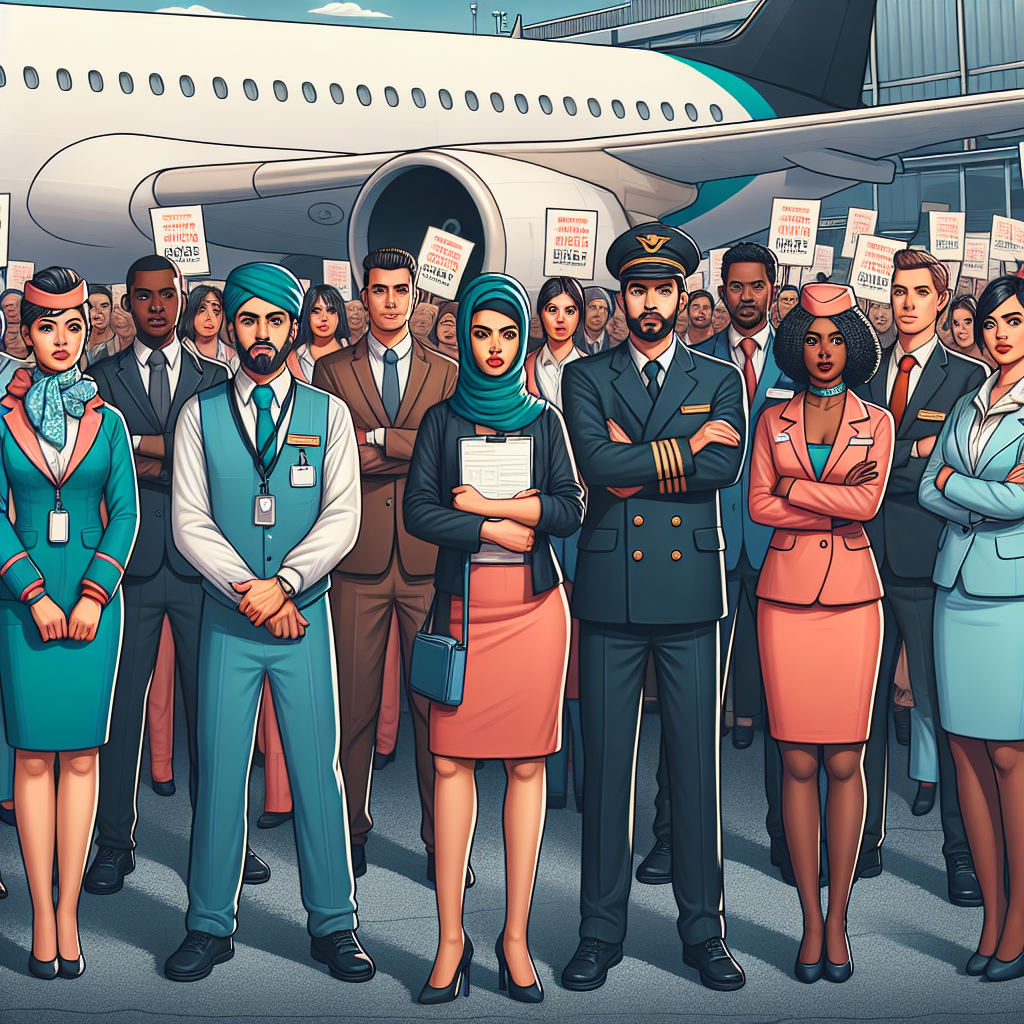Boeing's West Coast Strike Puts 737 MAX Production in Jeopardy
Boeing faces production challenges for its 737 MAX due to a strike by over 30,000 West Coast factory workers. CFO Brian West highlighted potential disruptions, including negative third-quarter margins for their defense and space unit. The strike affects the supply chain, raising concerns among suppliers who are already facing planning issues.

A strike beginning Friday by more than 30,000 of Boeing's U.S. West Coast factory workers will make it harder for the planemaker to meet a 737 MAX production target and stabilize its supply chain, CFO Brian West said on Friday. West also told the Morgan Stanley Laguna Conference he expects third-quarter margins from the company's defense and space unit to be negative, similar to those in the second quarter.
Workers from Seattle and Portland, Oregon, who produce the MAX and other jets walked off the job after overwhelmingly rejecting a contract deal due to demands for higher pay. The workers' first strike since 2008 comes as Boeing is under heavy scrutiny from U.S. regulators and customers after a door panel blew off a 737 MAX jet mid-air in January. West said Boeing had made progress towards ramping up production of its strongest selling jet back to 38 a month by year's end, despite earlier skepticism from rating agencies over the target.
"We've been making good progress on stabilizing production and preparing for that 38 per month by the end of the year. Now, obviously that's going to take longer," West said. West, however, would not comment on specifics related to the target, which depends on the duration of the strike.
The strike is creating more uncertainty and concern for suppliers of parts and components for programs like the 737 MAX. Many were already having difficulty planning production due to Boeing's repeated changes to internal forecasts for suppliers. If the stoppage continues it will have significant implications for Boeing's suppliers, said John Donigian, a supply chain specialist at rating agency Moody's.
"Boeing's suppliers will see impacts with delayed orders and financial strain due to the ripple effect across the supply chain," Donigian said. West suggested Boeing would stop taking parts from some suppliers on programs impacted by the strike where the planemaker already has ample inventory, but would keep purchasing from suppliers who are behind in their deliveries.
The company's 787 widebody jet is not impacted, as it is built in South Carolina by a non-unionized workforce. Asked about supply chain, West said for non-787 programs, if the supplier is not behind and the company has enough stock, "you know, don't deliver anymore." He said this messaging is "happening overnight and as we speak." In a note to clients, Jefferies said composite specialist Hexcel would be among the most exposed suppliers. Hexcel was not immediately available for comment.
Joe Buccino, spokesperson for key Boeing supplier Spirit AeroSystems which produces the 737 MAX fuselage, said "We are committed to supporting all our customers and will remain close to Boeing at this time." (Reporting By Allison Lampert and Abhijith Ganapavaram Editing by Nick Zieminski and David Gregorio)
(With inputs from agencies.)
- READ MORE ON:
- Boeing
- strike
- 737 MAX
- production
- West Coast
- workers
- supply chain
- CFO Brian West
- defense unit
- margins
ALSO READ
MCD sanitation workers who have completed 10 years of service must be regularised: Par panel
Italy's largest circus shut over alleged exploitation of migrant workers
PM Modi Hails Young Workers at BAPS Event, Announces New Youth Dialogue for 2025
Volkswagen Workers Threaten Unprecedented Strikes Over Wage Cuts
The Transformation Ahead: Sustainable Supply Chains in Europe’s Food Industry










